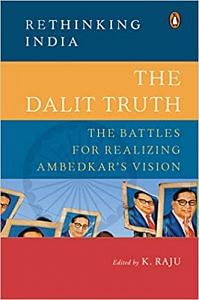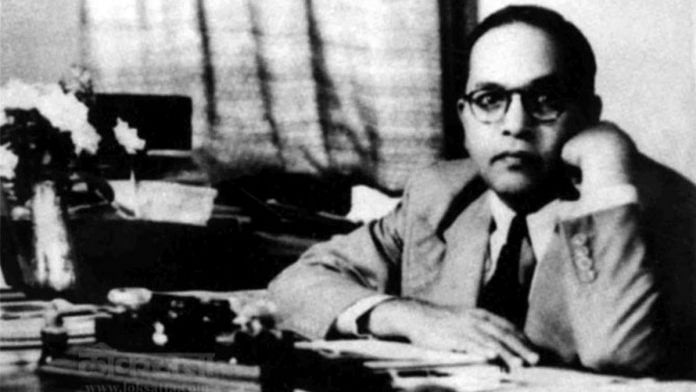Although for its own political benefits the colonial government did extend help to the Dalits under the leadership of Ambedkar, its overall goal to emancipate the Dalits was limited, owing to its self-serving investment in India’s politics and overwhelming control of Brahminical interests that acted against the Dalits. Ambedkar’s demands to free the untouchables from the clutches of Hindu control created a rift with dominant caste Hindus who were at the helm of the Congress party. Under the leadership of M.K. Gandhi, the feud between Gandhi and Ambedkar heightened. Ambedkar felt betrayed by Gandhi during the 1932 Poona Pact and the succeeding years when dealing with the Congress government. This policy of suppressing a Dalit agency continued in the post- Independence national framework.
The pre- and post-Independence eras have been mired by the duplicitous agenda of the Indian government’s task on tackling human rights abuses at home. Nehru undertook the UN-level fight against apartheid in South Africa and even co-sponsored resolutions imposing sanctions on South Africa. Nehru also issued Indian travel documents to South African revolutionaries like Oliver Tambo and Yusuf Dadoo. This was an ideal anti-colonial legacy that Nehru wanted to preserve the world over. He, however, did not take up India’s caste issue on any international forum. As, referring to caste segregation in India, Ambedkar once observed, ‘South Africa is replicated in every Indian village.’
The All India Scheduled Castes Federation passed a memorandum prepared by Ambedkar in 1947, which stated that the ‘tyranny and the constant and shameless resort to violence by Hindus, makes the position of the Scheduled Castes far worse than the position of Indians in South Africa’. South African prime minister D.F. Malan went to the level of challenging the Nehru government over the treatment of India’s untouchables. Referring to the South African Blacks, Malan retorted that at least ‘they were better off than Black people in the USA as well as untouchables in India’.
The Indian government ensured that the embarrassing and poignant question of caste was not raised. It went to the level of doing a back-door agreement with the apartheid government, whom it had chosen to shame and publicly fight against by becoming the frontrunner of post-colonial solidarity. This became a hymn of a sacred foreign policy doctrine. Successive prime ministers of various hues and colours successively adopted this as a mantra and aggressively worked against the protection of human rights of the Dalits.
Brahminism—which was not only casteist but racist, as it maintained an unequal recognition of Africans as of ‘lower-caste Indians’—was exported in India’s foreign-policy visions. The Indian Foreign Service officials were almost all Brahmins and from other dominant caste groups. This elevation of the dominant castes ensured that the issue of caste remained anathema and that it would not be exposed on international platforms.
Also Read: In Ambedkar’s ‘Proposed Preamble’ to Indian Constitution there was no ‘equality’ clause
Ambedkar’s UN Route
B.R. Ambedkar, on the contrary, was committed to making caste an issue of international concern. He saw this as the only way to get required justice for the Dalit community, which was put on the receiving end by the Indian National Congress and Jinnah’s Muslim League. Up to the Lahore Resolution, the Dalits were confident that a minority alliance between the Dalits and Muslims would help both the groups to fight in the Hindu-majority country. However, after the Lahore Resolution, this partnership was out of the question and thus, Ambedkar started actively seeking international alliances.
Pursuant to this, Ambedkar ensured that he took in confidence the British political class and general public that was invested in India. His 1946 trip to England, to advocate for international relief for the Dalits, has been analysed by Jesús Cháirez-Garza in his paper ‘B.R. Ambedkar, Partition and the Internationalization of Untouchability, 1939–47’. Cháirez-Garza argues that after his failure to secure rights from the imperial government, Ambedkar embarked to meet with the leaders of the British parliament. Prominent among them was the Conservative Party leader Winston Churchill. Ambedkar also made representations to the leadership of various political parties and MPs from the Labour Party, Conservative Party and the Fabians.
Ambedkar’s diplomatic move to garner international support was stopped by the influence of M.K. Gandhi, who preferred to not ‘negotiate’ with Ambedkar for fear of losing on ‘both fronts’. For Ambedkar, the call of the Indian nationalists for self-determination — ‘Swaraj’— while defying the purpose of minority rights protection, was betrayal and unbecoming of a nation state. Thus, he chose to approach the UN after his failure to receive adequate support from the Opposition and the government. This time, Vallabhbhai Patel, along with other Congress leaders, approached Ambedkar to negotiate. Gandhi continued to distrust Ambedkar’s efforts. In a reply to a letter by Carl Heath, a member of the Indian Conciliation Group who was an ardent follower of Gandhi, the latter did not exhibit sympathy to Ambedkar’s cause of internationalizing the struggle of the untouchables. Referring to Ambedkar, Gandhi added, ‘with men like him the end justifies the means’, and he refused to meet or entertain Ambedkar’s pressing demands.
The cause of Ambedkar was, however, echoed by Churchill and Jan Smuts, prime minister of South Africa, at international meetings and the United Nations. Smuts used the issue of untouchability to silence the hypocritical Indian government delegation led by Maharaj Singh, former governor of Bombay, who pressed for the rights of Indians in South Africa at the UN. Both Churchill and Smuts, colonial warlords, used untouchability for their own politics. The untouchables, however, remained the suppressed subjects, in spite of their sound political presence. Ambedkar got a seat in Nehru’s first cabinet as a law minister but was not given the important portfolios he had hoped for. In his resignation letter, Ambedkar elucidated various reasons for his exit. He was tokenized in the administration without having been given any substantive powers.
Also Read: Would Ambedkar, Tagore and Buddha have been declared anti-national today?
Ambedkar had not taken the case of the untouchables to the UN in 1947. His reasoning was premised on trusting the Constituent Assembly and the future Parliament of India, which he hoped would accord required rights to the untouchables. He was wrong, and thus his bitterness grew towards the ruling dispensation. Ambedkar also perhaps did not pursue the UN route aggressively, because he was hoping to get into the Constituent Assembly so he could channel the Constitution towards this goal. However, provisions made in the Constitution for the scheduled castes did not impress him. He bluntly stated in the resignation letter that:
. . . the provisions made in the Constitution for safeguarding the position of the Scheduled Castes were not to my satisfaction. However, I accepted them for what they were worth, hoping that the Government will show some determination to make them effective. What is the position of the Scheduled Castes today? So far as I see, it is the same as before. The same old tyranny, the same old oppression, the same old discrimination which existed before, exists now, and perhaps in a worst form.
This was a damning self-indictment of the leader of the scheduled castes who had hoped to secure their future in a Brahmin–Baniya-ruled independent India. Getting Ambedkar into the Constituent Assembly worked mutually for Ambedkar and the Congress party. However, the causes Ambedkar espoused were subdued and could not see the light. The internationalization of the Dalit cause and the intervention of the UN on the caste issue would have been an embarrassment for India. Perhaps there was some unwritten, silent agreement between the Congress and Ambedkar when he threatened to take India to the UN, which would work in delegitimizing the leadership of dominant caste Hindus in a recently independent nation. And this would also mean taking down the third-world, coloured people’s internationalism that Nehru wanted to champion. These questions remain with us, but the indifference of the UN towards the issue of caste continues.

This excerpt from Suraj Yengde’s essay in ‘The Dalit Truth: The Battles for Realizing Ambedkar’s Vision’, edited by K. Raju has been published with permission from Penguin Random House.



